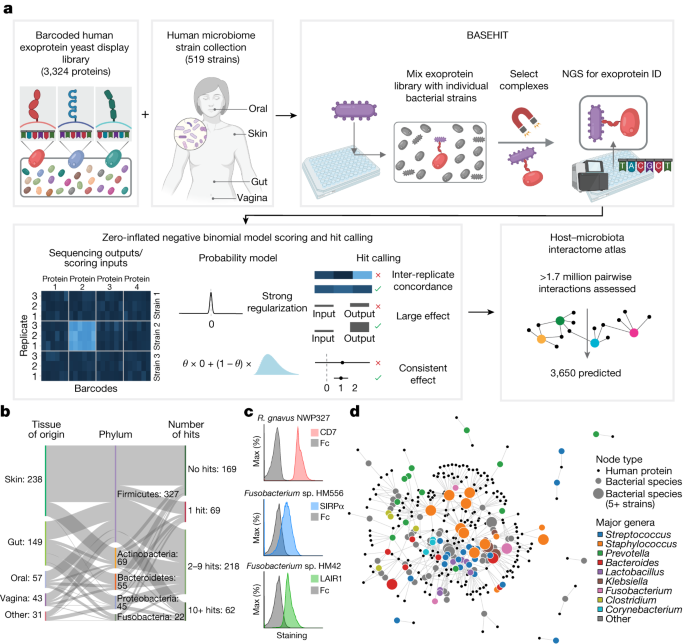Uncovering Extensive Host-Microbiota Interactions Through Proteome Analysis
The content delves into the intricate relationships between host exoproteins and microbiota, highlighting the significant impact of these interactions on human physiology. The development of the BASEHIT technology allowed for the exploration of over 1.7 million potential interactions between bacterial strains and human exoproteins, unveiling a vast network of transkingdom connectivity. Specific binding patterns within this network indicated biological logic, with conspecific strains sharing exoprotein-binding patterns and unique interactions observed between tissue isolates and tissue-specific exoproteins. These interactions have implications for niche colonization, tissue remodeling, immunomodulation, and overall effects on human health.
Customize Summary
Rewrite with AI
Generate Citations
Translate Source
To Another Language
Generate MindMap
from source content
Visit Source
www.nature.com
A host–microbiota interactome reveals extensive transkingdom connectivity - Nature
Key Insights Distilled From
by Nicole D. So... at www.nature.com 03-20-2024
https://www.nature.com/articles/s41586-024-07162-0
Deeper Inquiries
